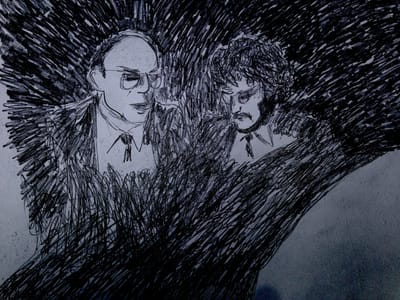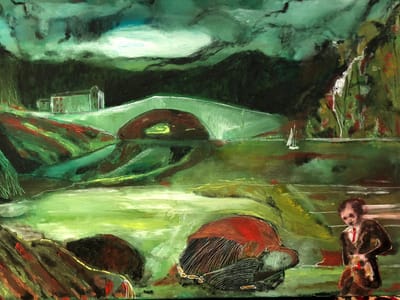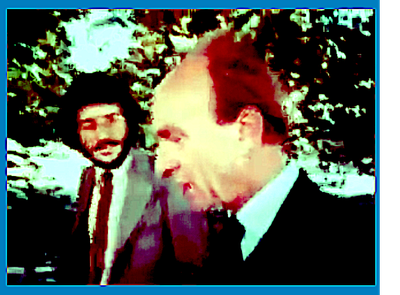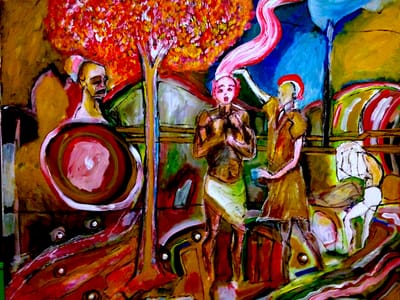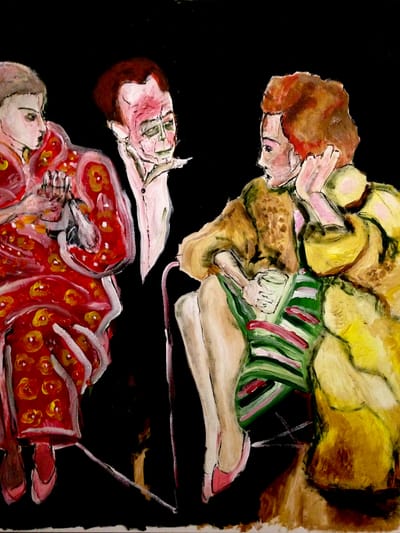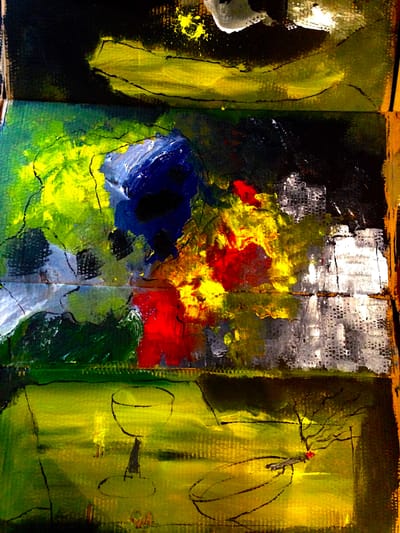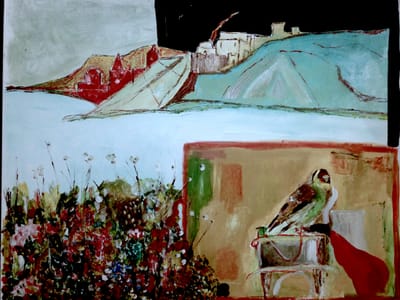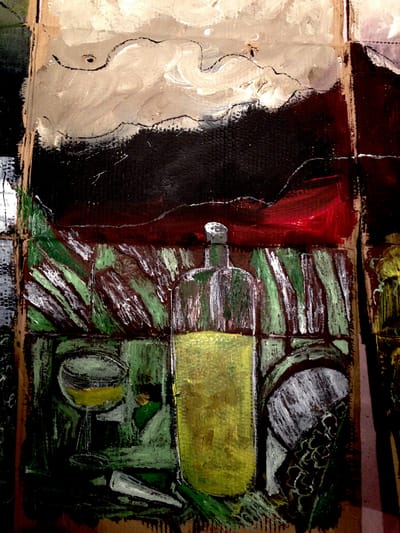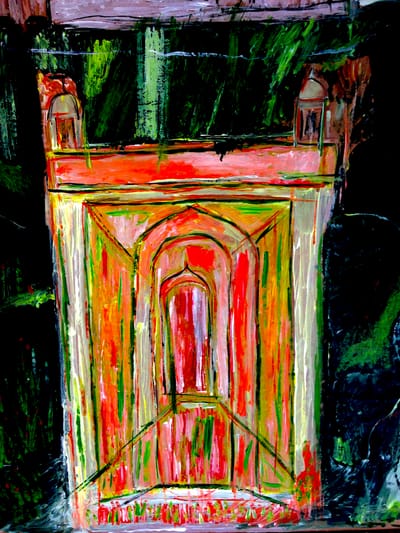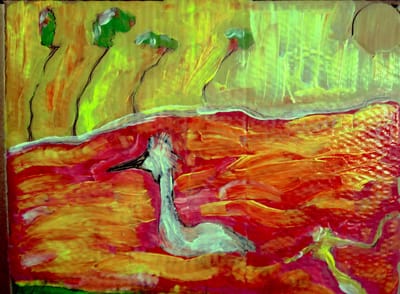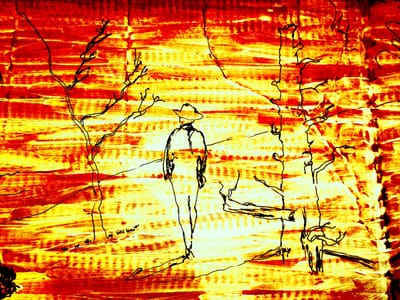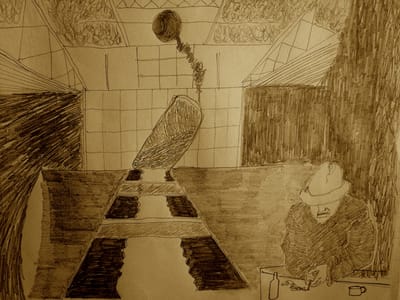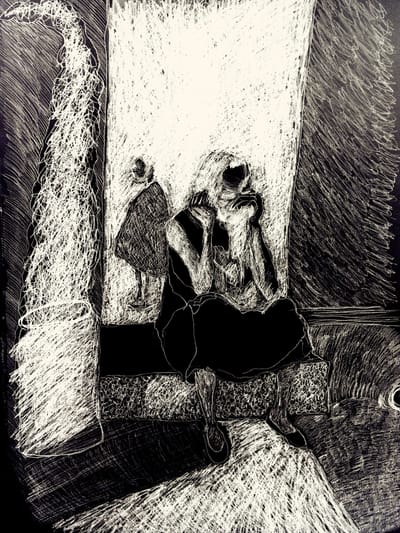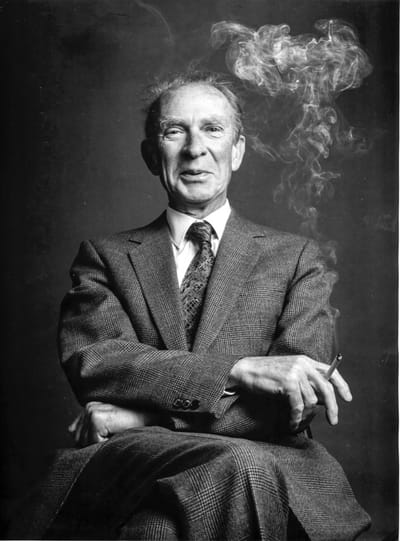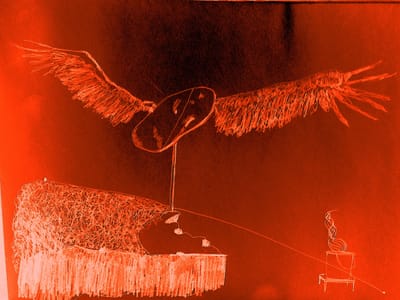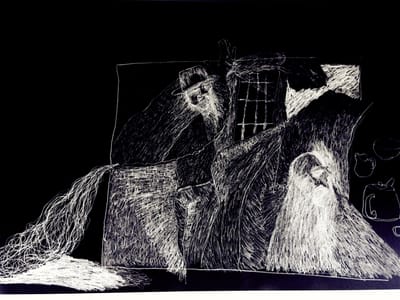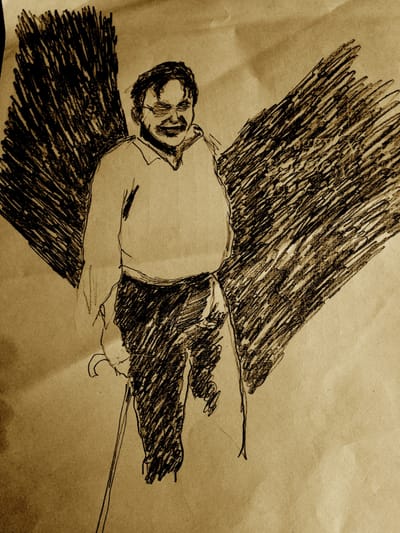Flickering Shadows: Truth in 16mm - Edited by Huw Price
An occasional series commissioned by Huw Price where contemporary philosophers consider the tv discussion between Peter Strawson and Gareth Evans regarding the nature of Truth from 1973. This is an introduction to the series by Huw Price. It includes links to the discussion on Youtube. As responses arrive they will be published here in chronological order, from newest to oldest. The latest essay is by Lincoln Allison.
Read MoreWatching the debate about truth between Peter Strawson and Gareth Evans is an intensely nostalgic experience for me. Gareth was my exact contemporary with whom I attended many lectures, tutorials and classes. Peter was my tutor in Philosophical Logic. But, for the record. I was never in a tutorial with both of them. Peter liked to give individual tutorials in the traditional way so he saw Gareth and myself separately. Lincoln Allison continues Huw Price's Flickering Shadows series.
Read MoreThe videotape of Strawson’s and Evans’ conversation makes nostalgic watching for those of us fortunate enough to have worked in Philosophy in Oxford in the nineteen seventies. Both were then highly influential in a vibrant local philosophical milieu. Strawson, the Waynflete Professor, cut a characteristically patrician, quietly authoritative figure and was widely regarded at that time as the best philosopher in Britain. Evans was the most mercurial, fluent and energetic of a group of philosophers at the beginning of their careers that also included Chris Peacocke, John McDowell, Derek Parfit, and Simon Blackburn. Crispin Wright continues Huw Price's Flickering Shadows series.
Read MoreOne of those credited with founding the Open University, Jennie Lee, said of her creation: ‘There it is, a great independent university which does not insult any man or woman whatever their background by offering them the second best. Nothing but the best is good enough.’ Derek Matravers and Dan Cavedon-Taylor continue Huw Price's Flickering Shadows series.
Read More“What is truth?”, like, “What is Justice?” is a classic philosophical question, and rightly so. But as with other fundamental questions, how we approach it can tell us as much about ourselves—that is, the culture we are living in—as our answers to it. Michael Patrick Lynch continues Huw Price's Flickering Shadows series.
Read MoreThe video is engrossing. It might be staged, but the conversation flows naturally. The participants are sharp and engaging. They draw you in, and it is thrilling to feel that you’re in the room with these titans of philosophy, however briefly. You can almost smell the cigarette smoke. And, beneath that, another (more sinister?) scent. The whiff of deflationism. William Gamester continues Huw Price's Flickering Shadows series.
Read MoreLike others commentators, we are struck by the timeliness of the discussion between Strawson and Evans. Their conversation offers a compact tour through some of the issues that still divide current viewpoints on truth. We find ourselves siding with Strawson on some of these, with Evans on others. Dorit Bar-On and Keith Simmons continue Huw Price's Flickering Shadows series.
Read MoreGareth Evans died three years before I came up to Oxford, so I never met him. Late in his life, however, I got to know Peter Strawson. Most Oxford colleges push fellows out of their rooms as soon as they retire. A grateful former student, though, made substantial annual donations to University College on the understanding that it would give Strawson a room in which to work for as long as he wanted one. From 1998 until 2005, when I was teaching at Univ, I consequently found myself sitting beside him at lunch at least once a week during term. Even though he turned eighty in 1999, Strawson retained to the end an ability to cut to the heart of a philosophical issue. While I was never formally his student, I look back on those lunches as an important part of my education. Ian Rumfitt continues Huw Price's Flickering Shadows series.
Read MoreI confess that I read too quickly Huw’s email inviting me to contribute to this series—we were on our way to the beach, the restrictions of lockdown having lifted sufficiently for us to leave the city. But I accepted without hesitation. After all, the exchange between Strawson and Evans is a wonderful piece of film, one which shines light on the two philosophers, on Oxford philosophy of its time, and on the topics they discuss. Who could turn down an opportunity to talk about that discussion? There was only one problem: I was thinking of the wrong film. Anil Gomes continues Huw Price's Flickering Shadows series.
Read MoreAphorisms are very becoming. Even truth looks better in them. Or so it seems. In the conversation, Strawson mentions Ramsey's “there is no separate problem of truth” and Austin's “It takes two to make a truth”. But aphorisms cannot replace theoretical work. M. J. Frápolli continues Huw Price's Flickering Shadows series.
Read MoreGareth Evans, like Paul Horwich , is skeptical of Strawson’s suggestion that there might be a primary sense of ‘true’, in which empirical statements are true, and then some extended sense in which statements in ethics and mathematics are true. So am I. I think it’s the facts that are different sorts of facts, so naturally the truth of the statements will seem different.Compare Quine’s remark, in “On what there is”, that when we say a cube root exists, we’re not using a special sense of ‘exists’ in which space and time are uninvolved, but rather saying the same thing about something that isn’t spatiotemporal as we say about a star when we say that it exists. Jamie Dreier continues Huw Price's Flickering Shadows series.
Read MoreYou walk into your living room to find your friends, Anne and Bob, talking about whether euthanasia is morally right or wrong. Their conversation starts in a friendly way, but when Bob claims that his view is “clearly true” Anne rolls her eyes and tells him why his view isn’t true. Anne claims that Bob’s view about euthanasia is not only not obviously true, it is not true at all. She gives a counterexample, and Bob gives his reply. Eventually their argument stops, they both sense they are going in circles. Bob turns to you and asks which view you think is true. Rachel Handley continues Huw Price's Flickering Shadows series.
Read MoreWhile watching this marvellous conversation – and trying to banish thoughts of Jonathan Miller and Alan Bennett discussing Hegel’s Moral Doubts and the unfetched slab – I was interested to see Strawson and Evans grappling with a problem that, fifty years later, is still being addressed by philosophers though using quite different terms. Matthew Simpson continues Huw Price's Flickering Shadows series.
Read MoreThe flickering format makes this discussion seem like ancient history, but the content is so contemporary you want to join the conversation. Let me explain where I would step into the room. Susan Wilson introduces the discussion by saying what we want from a theory of truth is to say—“how true statements resemble each other, and how they differ”—which sounds innocent enough. But it does have a certain presupposition that remains widespread today: that ‘truth’ is a predicate that names a quality shared by all true statements; our task is to investigate it. Amie L. Thomasson continues Huw Price's Flickering Shadows series.
Read MoreChristopher Peacocke begins his contribution to this series by acknowledging the ‘Proustian nostalgia’ that film is apt to evoke ‘in the dwindling group of those who were members of the Oxford philosophical community in the early 1970s.’ I am too young for such nostalgia. Nikhil Krishnan continues Huw Price's Flickering Shadows series.
Read MoreIt is hard to read the transcript of Strawson and Evans’ discussion as anything other than a staged rehearsal of a set of issues about truth about which they shared a common awareness and to which they intended to jointly introduce their audience. But this doesn’t make the prescience of much of their conversation any less remarkable – on the contrary, looking back from 2020 it is especially humbling how many important pieces of what have felt like earned progress over the intervening decades were considered by them to be sufficiently common ground to be worth deliberately rehearsing in this way. Mark Schroeder continues Huw Price's Flickering Shadows series.
Read MoreThe 1973 film of the conversation between Peter Strawson and Gareth Evans on truth is apt to cause a Proustian nostalgia in the dwindling group of those who were members of the Oxford philosophical community in the early 1970s. Nostalgia aside, its philosophical interest remains. Before I turn to philosophy, I note the importance of preserving video records of current philosophical discussions that of are of comparable interest. Many of them are on YouTube, but we cannot not leave it in the hands of for-profit organizations to preserve the historical record. Christopher Peacocke continues Huw Price's Flickering Shadows series.
Read MoreBoth parties to this gem of a conversation agree that the range of statements that we think of as capable of being true or false outstrips the range of statements for which the world contains corresponding facts—facts on whose obtaining the truth value of the statements depends. Which statements fall in this category of factless truths is open to discussion, but Strawson and Evans agree that the category is not empty, and that it includes at least mathematical and ethical statements. José Zalabardo continues Huw Price's Flickering Shadows series.
Read MoreIt’s tempting to hail the 1973 filmed discussion between P.F. Strawson and Gareth Evans as a real-life Platonic dialogue. We seem privy to an encounter between a probing young Socrates and a magisterial yet magnanimous Parmenides or Protagoras, on the grand Parmenidean-Protagorean subject of Truth. One can imagine Strawson, off camera, complimenting Evans as the most promising philosophical mind of his generation (Protagoras361e). Lionel Shapiro continues Huw Price's Flickering Shadows series.
Read MoreThe problem of truth – narrowly construed – is to give a fully general account of the conditions under which an assertion or belief counts as true. Both Strawson and Evans agree that this in itself isn’t particularly hard; we can say, with Ramsey, that an assertion or belief is true just in case it is an assertion or belief that things are thus-and-so, and things are thus-and-so. But Strawson and Evans also agree that unless we understand what assertions and beliefs themselves are – a tricky issue – we can’t fully understand what Ramsey’s one-sentence account is telling us. Joshua Gert continues Huw Price's Flickering Shadows series.
Read MoreRevisiting the film I was struck once more by Strawson’s wonderfully delicate, feline, handling of the issues surrounding truth. As Cheryl Misak has emphasized, he sounds remarkably like Frank Ramsey, whose famous dismissal of the idea that there is a separate problem of truth is but a prelude to his hurling himself at problems of meaning and assertion. Simon Blackburn continues Huw Price's Flickering Shadows series.
Read MorePeter Strawson and Gareth Evans touch on many important and often still unresolved issues in this remarkable conversation. I would like to focus just on one. Is there a distinction between areas of discourse (e.g., physics and history, perhaps) that purport to state facts, and those (e.g., ethics and aesthetics, perhaps) that don't. Paul Horwich continues Huw Price's Flickering Shadows series.
Read MoreThe sound crackles, the picture fizzles; Susan Wilson introduces the participants. P.F. Strawson, the grizzled veteran of many a philosophical tussle, and Gareth Evans, the young bearded and bespectacled upstart. Strawson revels in the conversation. You can see the delight on his face as he poses a tricky question, yet he also has the humility to know when he needs to backtrack and re-state a point. Douglas Edwards continues Huw Price's Flickering Shadows project.
Read MoreSusan Wilson sets up the Strawson-Evans discussion with an account of what we want when we ask ‘what is truth?’ One thing we want is an explanation of how we can apply the same word—'true’—to many different kinds of statements. As she puts it: “We want to show how all true statements resemble each other and how they differ”. Frank Ramsey had an answer to this question, an answer which Strawson reaches for in this gem of an exchange. Cheryl Misak writes the first of Huw Price's Flickering Shadows: Truth at 16mm series.
Read More